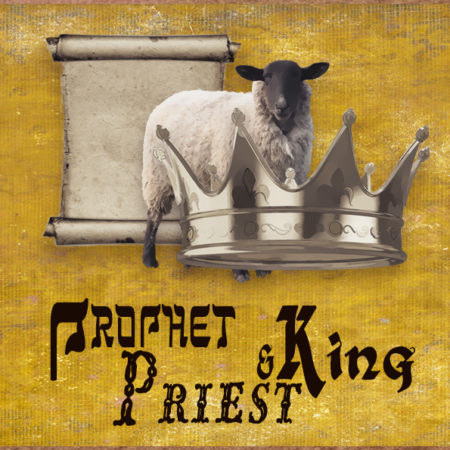Having considered together the OT background of both the Prophetic and Priestly offices we now turn our attentions to the office of King. As with the other offices, the pattern of what it meant to serve as king can be seen originally in Eden and can also be observed in the way the patriarchs led God’s people in Genesis. While the prophetic and priestly offices were officially established fairly early on in the history of the nation, the kingship wasn’t established until after the time of the judges.
From the beginning of Scripture, although mankind was delegated with the authority to rule over creation, God had demonstrated Himself to be the true King of Creation. His decision to choose for Himself a people from among the nations was intended to demonstrate His Kingship and rule to all other nations. God’s work on Israel’s behalf in the Exodus showed that He was their King who could defeat their enemies, setting them free to worship Him. Having given His Law to them at Mt. Sinai, God also demonstrated that He was their Shepherd who could bring justice to their society and instruct them in how to live righteously. In 1 Sam. 8:4-22, however, Israel rejected God as King and demanded that the prophet Samuel appoint for them a human king so that they might be like the other nations. God told Samuel to grant their request which, despite its appearance, did not remove God from His position of Kingship. In fact, He had already anticipated this action on behalf of the people and given instructions in Deut. 17:14-20 regarding how the future kings of Israel were to conduct themselves under His authority.
It was the anointing of Saul as king over the people which officially established the Israelite kingdom. Although Saul fulfilled the role of king in terms of his military success, he sinned against the Lord, denying His Word and therefore failing to serve as an example of faithfulness to the people. His successor, David, would go on to become the ideal example of what the king Israel was to be. He was a successful military leader and administrator while also being a man after God’s own heart who called the people to righteousness and faithfulness to the covenant. Unfortunately, David failed in his personal life, committing adultery with Bathsheba and murdering Uriah. He also failed to trust the Lord towards the end of his days, ordering a census which the Lord had not commanded. His son, Solomon, came to power and served well in his role as king in terms of administration and economics. He was a failure, however, in his personal life, disobeying the commands of the Lord given in Deut. 17 and turning away from the Lord.
Following the death of Solomon, the kingdom was divided. Though some of these kings were faithful at times, for the most failed to properly shepherd God’s people. As the kingdom fell further away from the Lord because of poor leadership, it eventually came to be under threat from the nations that surrounded them. In response to these crises, the Lord sent prophets to them who proclaimed the coming of a Great King in the latter days.
This Messiah (Promised One) would serve as a Good Shepherd over the people of God. He would come from David’s family and would be filled with the Spirit and characterized by the fear of the Lord (Isa. 11:1-5). He would also defeat the enemies of God’s people so that they my dwell in safety and worship Him (Isa. 50:4-11). Finally, He would bring about righteousness and justice to the people of Israel as well as the other nations (Isa. 42:1-4), teaching them and leading them in the way that they should go (Isa. 48:16-17).
Jesus Christ came to His people who had been the recipients of these great promises and yet was rejected and crucified. This was, ironically, the means by which God would defeat the true enemies of the people of God. Death on the cross was the means by which Christ redeemed His people and His Resurrection and Ascension were the means by which He conquered and took His place of royal authority at the right hand of God the Father.
We gather this Sunday to worship Him in His glory and to recognize Him as the Chief Shepherd who loves and leads His people. We will also take time to remember His person and work as we celebrate the Lord’s Table together.
Soli Deo Gloria.
-Thomas

